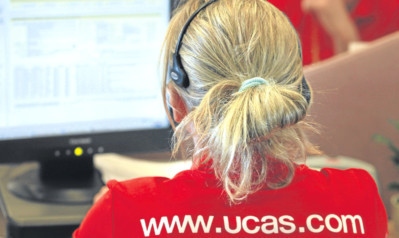
Desperate British students are having to call premium-rate numbers to get help with their future studies while foreigners get the same service without rip-off charges.
The University and Colleges Admissions Service (UCAS) provides an 0871 number costing up to £4.50 on a mobile phone for a 10-minute call.
Would-be students calling from abroad use an 03 number, which is charged at the same rate as calls to geographic numbers in the UK.
Campaigners said the service was exploiting vulnerable British pupils many of whom are desperate to find out whether they have won a place at their university of choice. UCAS received 612,750 applications to study at UK universities by its March 2014 deadline. Of those, 512,660 were from the UK, 42,090 from other European Union countries and 58,000 from outside the EU.
Thousands of British students will already be calling UCAS to track their application or find out about their future accommodation or finance. Many more will need to enter clearing later this year, mainly those who have not been accepted on the course they applied for.
David Hickson of the Fair Telecoms Campaign said: “In most cases this will affect people whose future plans have taken a knock because they haven’t got the grades. UCAS takes advantage of that situation by charging them premium rates to use the service.”
Our reporter attempted to call the 03 number from the UK. A recorded message says: “This number is only available for international callers.”
Mr Hickson said: “They have taken the special steps necessary so that, when they take calls, they are able to identify broadly where they are coming from. If their system can see the call has come from a UK number, you are routed to a recorded message which effectively says ‘get lost, ring the more expensive number’.”
Calls to the premium-rate number cost about 12p per minute from a BT landline. However, calls cost anything up to 45p a minute from a mobile.
The person calling 03 numbers doesn’t pay a premium rate and they are included in call packages for landlines and mobile phones.
International callers will only pay charges levied by their own provider, whereas UK callers are paying a subsidy to UCAS. This is equivalent to about 11p per minute. In many cases this will make calls from abroad much cheaper.
Mr Hickson said: “Deliberately blocking access to the 03 number is a clear attempt to selectively apply a charge. If UCAS is happy to be seen to be exploiting students in this way, then it should openly declare the charge.”
UCAS said students with the internet could access details online. A spokesman said money made through charging premium numbers was redistributed within UCAS, a charity, to improve services. “We are reviewing our telephone numbers and if changes are made, students will be informed through their online application.”

Enjoy the convenience of having The Sunday Post delivered as a digital ePaper straight to your smartphone, tablet or computer.
Subscribe for only £5.49 a month and enjoy all the benefits of the printed paper as a digital replica.
Subscribe